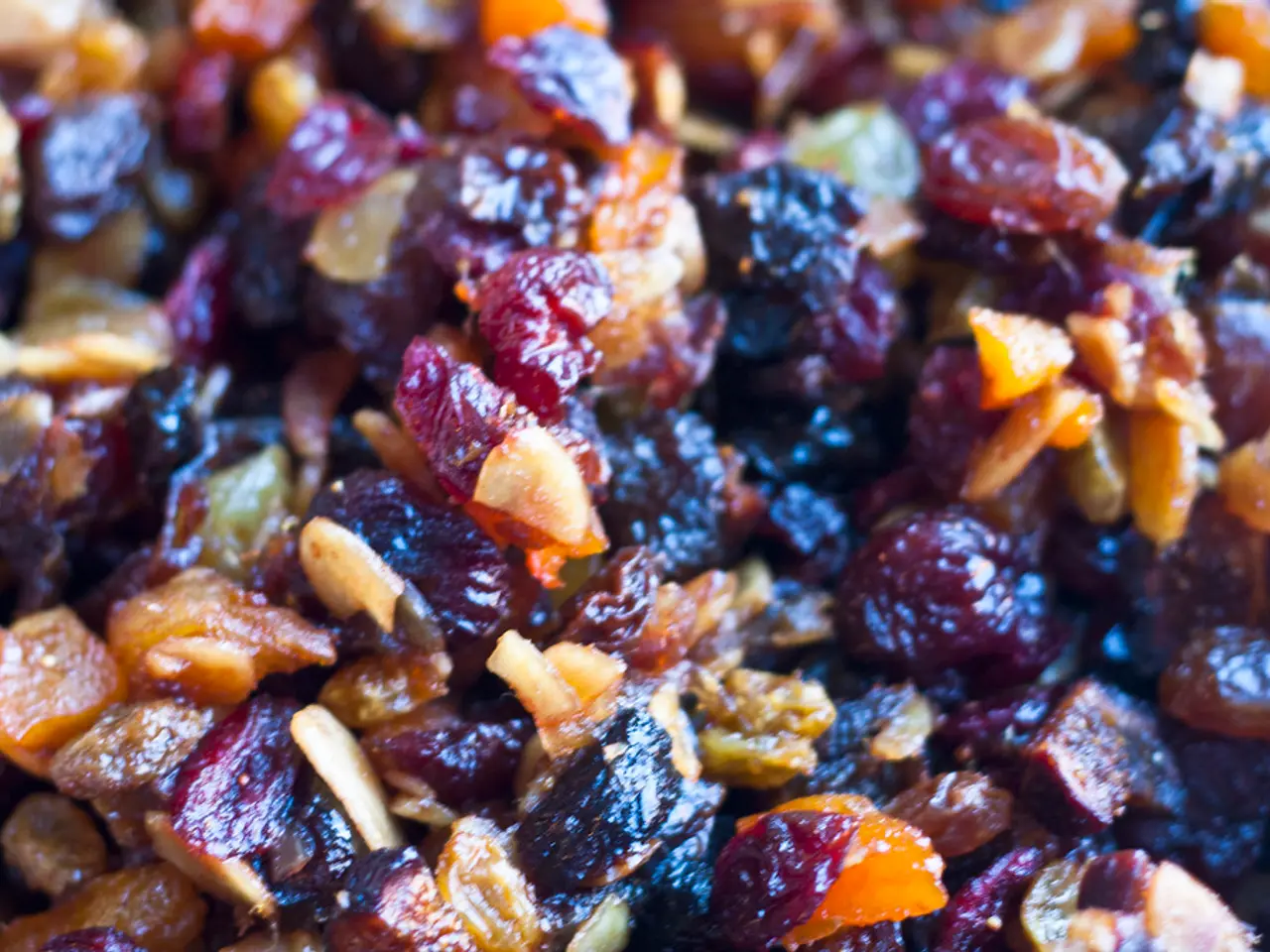Maintaining liver health and enhancing detoxification through dietary choices
A well-functioning liver is crucial for maintaining overall health, as it performs over 500 vital functions, including filtering toxins, processing nutrients, and managing metabolism. Here are some foods that can help support and activate your liver for optimal health and detoxification.
Cruciferous Vegetables
Increase your intake of cruciferous vegetables such as broccoli, cauliflower, Brussels sprouts, cabbage, and kale. These vegetables boost glutathione production and contain glucosinolate compounds that activate liver detox enzymes and flush out toxins and carcinogens.
Fatty Fish
Rich in omega-3 fatty acids, fatty fish like salmon, sardines, and mackerel help reduce liver fat, inflammation, and balance liver enzymes.
Nuts and Seeds
Nuts and seeds such as walnuts, almonds, sunflower seeds, and chia seeds provide omega-3s, vitamin E, and antioxidants that improve liver function and protect against damage.
Avocado
Avocado, with its healthy fats and fiber, slows liver damage and supports weight management.
Garlic and Ginger
Garlic and ginger help reduce liver fat and support detoxification by enhancing liver enzyme activity.
Turmeric
Turmeric, with its active compound curcumin, boosts bile production, repairs liver cells, and assists in detoxifying metals.
Green Tea
Green tea reduces fat storage in the liver and improves liver function via antioxidants.
Citrus Fruits
Citrus fruits like oranges, lemons, and grapefruit contain high vitamin C content, which stimulates liver detoxification and helps convert toxins into excretable substances. Grapefruit also contains naringin and naringenin, which reduce inflammation and protect liver cells.
Beets and Carrots
Beets and carrots support bile flow and enzymatic activity, cleanse the blood, and help break down toxins.
Olive Oil and Other Cold-Pressed Oils
Olive oil and other cold-pressed oils, such as hemp and flaxseed, provide healthy omega-3 fats that reduce liver enzyme levels and support weight management.
Veggies High in Fiber and Chlorophyll
Spinach, kale, collard greens, and other leafy greens support liver repair and detox by aiding digestion and stimulating toxin removal.
Low-Fat Dairy
Low-fat dairy products like milk, yogurt, and cheese contain whey protein that protects the liver from damage.
Fermented Foods
Fermented foods like kimchi, sauerkraut, kefir, and others help process toxins before they reach the liver, reduce bacterial translocation that can trigger liver inflammation, and produce short-chain fatty acids that nourish the intestinal barrier.
Electrolyte-Rich Foods
Lemon, limes, cucumber, and celery provide natural electrolytes for cellular communication and stimulate bile flow for improved fat digestion.
Polyphenol-Rich Foods
Berries, green tea, dark chocolate, and turmeric provide polyphenols that protect liver cells from oxidative damage.
Incorporating a variety of these foods into your diet can enhance liver detoxification pathways, reduce fat accumulation, prevent damage, and promote optimal liver health. If you experience persistent fatigue, digestive discomfort, brain fog, hormonal imbalances, unexplained weight fluctuations, yellowing skin or eyes (jaundice), itchy skin without visible rash, abdominal bloating, or discomfort, these could be warning signs of a struggling liver. Consult a healthcare professional for guidance.
- In addition to a balanced diet, supplements such as milk thistle and dandelion root can support liver health by reducing inflammation and improving detoxification processes.
- For those with medical conditions like digestive issues or weight management problems, fitness and exercise, coupled with proper nutrition, can aid in maintaining a healthy liver.
- Skin-care products containing CBD may help soothe inflamed skin, as CBD has potential anti-inflammatory properties that can indirectly relieve stress on the liver.
- Therapies and treatments like acupuncture and herbal remedies have been used traditionally to support liver function and foster overall health and wellness.
- Adequate hydration is crucial for liver health, as it aids in flushing out toxins and maintaining proper digestive function.
- If symptoms of liver distress persist, medical-conditions such as hepatitis or cirrhosis may be present, requiring immediate professional attention for appropriate therapies, lifestyle modifications, or medications.




